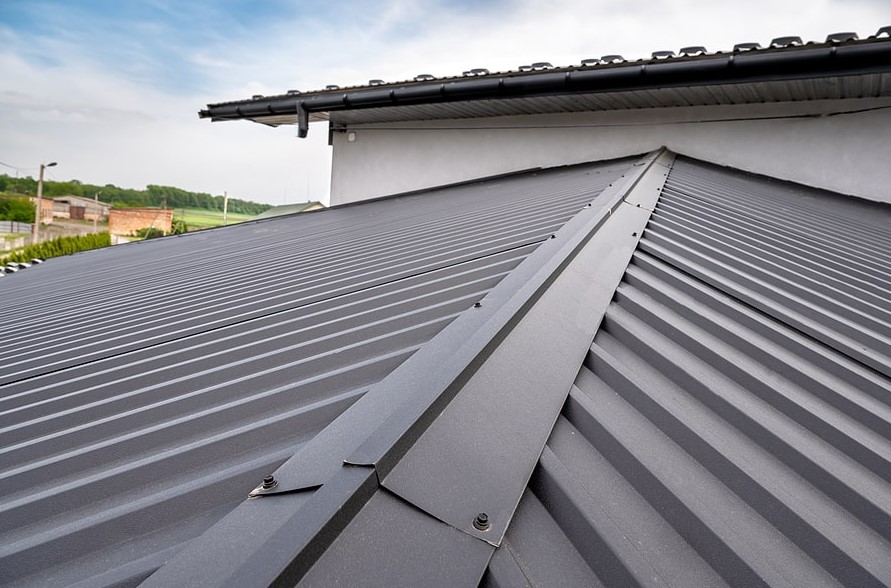
When it comes to commercial roofs, there are a few different choices that you may want to consider. These are built-up roofing, Modified Bitumen, Silicone, and Thermoset roofing membranes. While you’ll definitely want to find the best type of roof for your business, it can be easy to get confused by all the different options out there.
Modified Bitumen Roofing
One of the most typical materials for flat roofs is modified bitumen roofing. It has a wide variety of uses. This type of roof is typically used on flat commercial roofs. However, it can also be used on a low-slope top.
Modified bitumen is a roofing material that combines asphalt with polymerized rubber. The resulting membrane is waterproof and resistant to harsh weather conditions. Some forms of modified bitumen are highly reflective, which helps to reduce energy costs.
Modified bitumen roofing is commonly installed in a single-ply or multi-ply system. These roof systems usually come with warranties that last up to 20 years. In addition, they are often recycled.
If you plan to install modified bitumen, you’ll need to have adequate training. It would help if you also informed other buildings on your property about the installation. Otherwise, the fumes released from the torch during the process can be harmful.
Generally, a modified bitumen roofing system should be installed using a torch and an expert like the chicagoland roofing experts. This method is safer and less intrusive than peel-and-stick roofing.
Built-Up Roofing
The standard commercial built-up roofing system is a waterproof, durable, and inexpensive solution for commercial buildings. It has been in use in the US for more than a century. However, several drawbacks exist.
One of the biggest draws is the low maintenance required. This makes the type of roofing appealing to many business owners. As a result, it’s becoming more and more popular.
Another reason to consider built-up roofing is that it’s fire-resistant. This is because the material is made of layers of tar, gravel, and a few other materials. These layers are heated, and then a waterproof membrane is formed.
A built-up roof can last as long as 40 years, depending on how the roof was installed. That’s impressive, but it also means that it can be quite a pain to maintain.
Also, the materials used in built-up roofing are potentially hazardous. They can emit fumes that can affect people who use the building.
Thermoset Roof Membrane
Thermoset roof membranes are an excellent option for standard commercial roofs. They offer a long lifespan and low energy costs. These roofing materials are also easy to install and repair.
In addition, thermoset membranes provide extra protection against ozone exposure and natural disasters. They can last for up to twenty years and are a cost-effective alternative to other roofing options.
The most common kind of thermoset membrane is EPDM. It offers superior resistance to heat and is considered “green” in construction. It is available in reinforced and non-reinforced sheeting.
EPDM is a synthetic rubber material. It is commonly used on commercial and industrial buildings. While it is a cost-effective choice, it can be prone to damage from extreme temperatures.
PVC is another standard thermoplastic roof membrane. This material is highly durable and resistant to fats and oils. However, the material is not suitable for use on extremely hot roofs.
A variety of roofing materials are available for both residential and commercial use. Roofing materials are available in single-ply, built-up, and loose-lay forms. All types of these roofing systems offer different performance and longevity characteristics. Choosing a suitable material for your project is essential.
Silicone Roof Types
Silicone roof types are one of the best ways to protect your commercial building from harsh weather effects. These durable coatings can last for years, providing protection from the elements.
Silicone roofs are highly resistant to UV light, water, mold and mildew. They are also able to withstand extreme temperature fluctuations. In addition, they offer excellent resistance to staining and leaks.
A silicone coating is a liquid emulsion that is sprayed or rolled onto a roof. It is designed to form a seamless membrane that is waterproof and impermeable. This type of roofing material is applied to both flat and built-up roofs.
Unlike other coatings, silicone does not decompose or degrade after installation. Besides its ability to withstand extreme weather conditions, it is also environmentally friendly. The VOCs in silicone are low.
Because silicone can be applied over a wide range of commercial roofing substrates, it is a popular choice for re-covering roofs. Compared to other roofing materials, it is also cost-effective.
